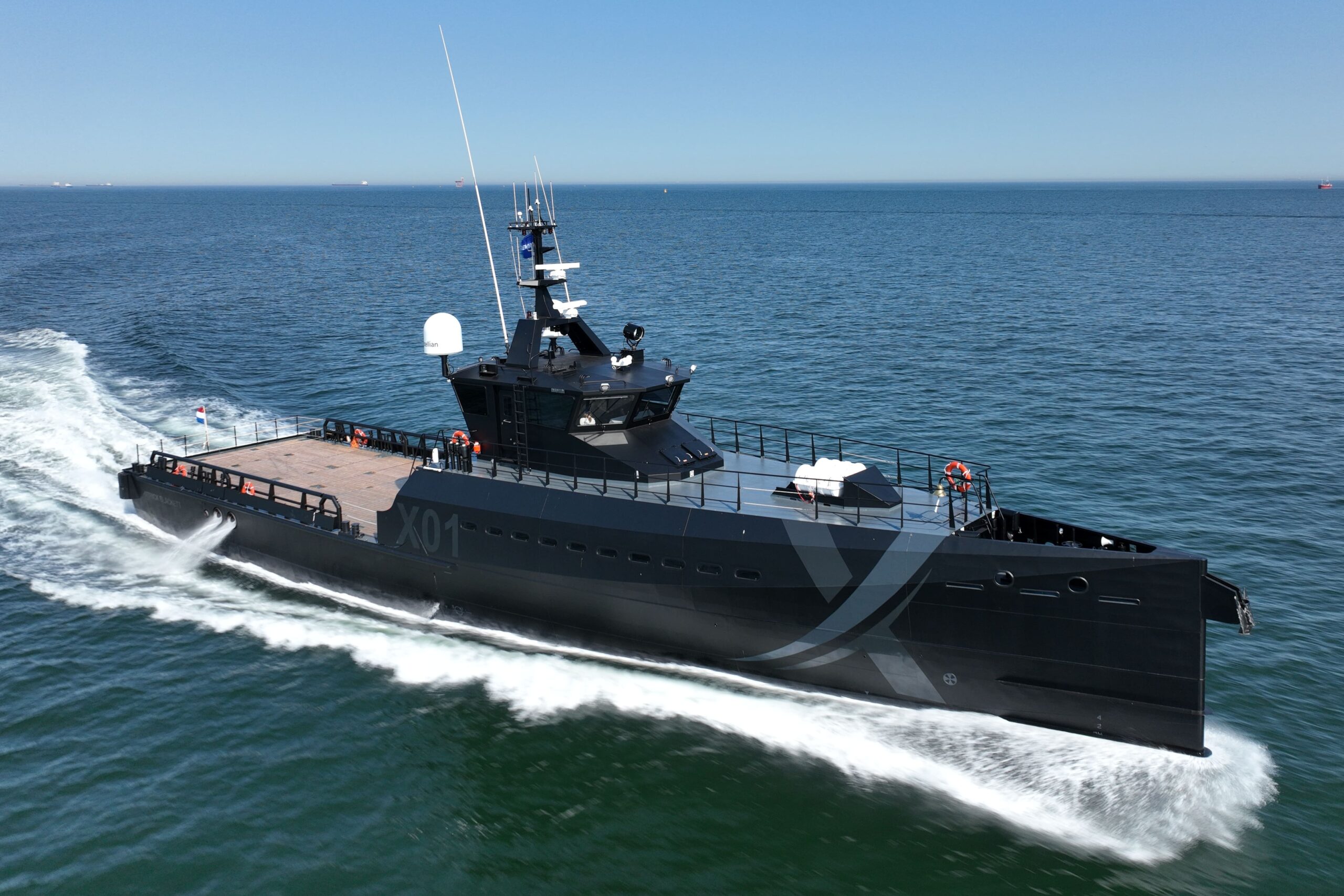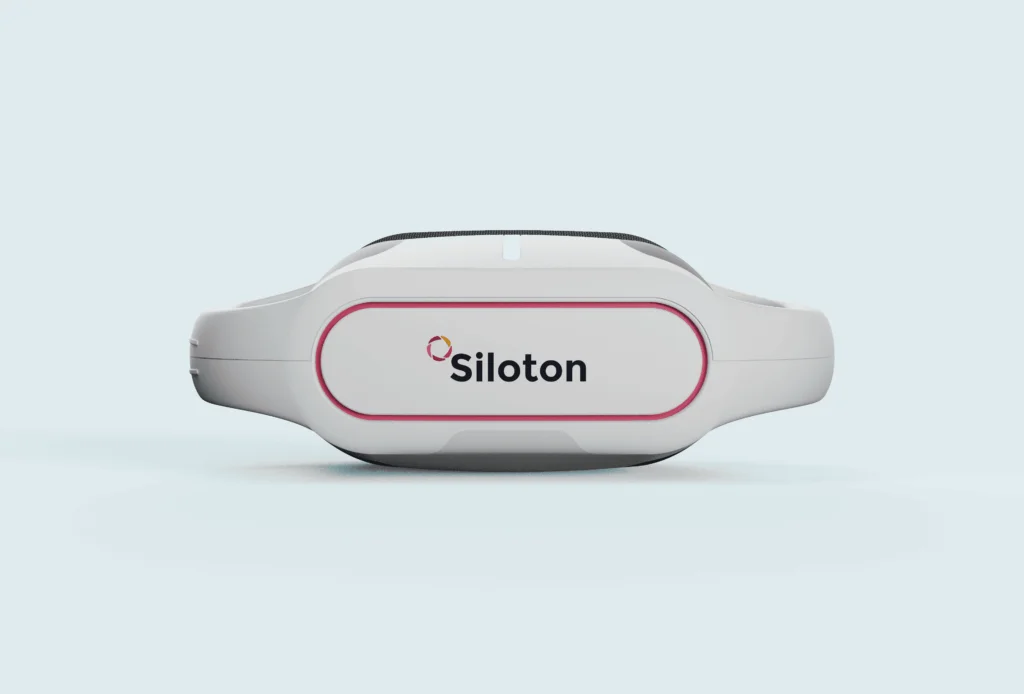Insider Brief
- Infleqtion UK successfully completed the first phase of its Quantum Enhanced Inertial Navigation Systems (Q-NAV) project, with key stakeholders discussing achievements at the Quantum Navigation Industry Day.
- The Q-NAV project focuses on developing a Quantum-Enhanced Inertial Navigation System (Q-INS) to address vulnerabilities in Global Navigation Satellite Systems (GNSS), especially in environments where GNSS is compromised.
- Collaborating with QinetiQ and the Royal Navy, Infleqtion aims to blend quantum and classical sensors for superior navigation performance, with sea trials planned on the Navy’s XV Patrick Blackett vessel in early 2025.
- Image: By Royal Navy
PRESS RELEASE — Infleqtion UK is delighted to announce the successful completion of the first phase of its Quantum Enhanced Inertial Navigation Systems (Q-NAV) project awarded by Innovate UK, culminating in its Quantum Navigation Industry Day on 27 June.
Held at the Institute of Physics (IOP) in London, the Industry Day provided a valuable opportunity for Infleqtion, its project partners, government officials, and industry stakeholders from 20 organisations to assess the latest advancements in quantum technologies for positioning, navigation, and timing (PNT). Attendees explored the progress made by the Q-NAV team and engaged in critical discussions about the opportunities and challenges shaping the future of this sector.
A Visionary Commitment to Navigation Excellence

Dr Tim Ballance, President of Infleqtion UK, articulated our vision: “At Infleqtion, we are resolute in addressing the vulnerabilities of current navigation systems, particularly in environments where GNSS is compromised. Our collaboration with QinetiQ and the Royal Navy epitomises our mission to deploy cutting-edge quantum solutions to enhance both military and civilian navigation.”
Building on the recent world-first flight demonstration of our ultra-cold matter platform for quantum Positioning, Navigation and Timing (PNT), Q-NAV will develop a Quantum-Enhanced Inertial Navigation System (Q-INS) to address the limitations of Global Navigation Satellite Systems (GNSS). While GNSS is widely used globally, its vulnerability to spoofing and jamming attacks, as seen in recent conflicts, poses a significant risk.
Lieutenant Colonel Scott Wallace RM, of the Royal Navy Office of the Chief Technology Officer, said: “Partnerships and collaboration between industry and end-users are key to accelerating Quantum Technologies into mature and useable capabilities. While there is still a lot of hard work to be done, the early successes OCTO and Infleqtion are enjoying are indicative of the art of the possible when stakeholders share a common vision for innovation.”
Our Commitment to Advanced Navigation Technology
At Infleqtion, we are dedicated to pioneering advancements in navigation systems, addressing current technologies’ vulnerabilities, particularly in critical operational environments where GNSS is frequently compromised. Historically, inertial navigation systems (INS) were the accuracy benchmark before the advent of GNSS. While the accuracy of INS depends on its sensors’ sensitivity, drift and noise performance, these systems currently serve as a backup to GNSS significant limitations on positioning and navigation during long-duration GNSS holdovers.
Over the past decade, atomic interferometers have revolutionised the boundaries of inertial sensor noise and stability in laboratory settings by exploiting quantum superposition. However, these groundbreaking technologies have yet to be fully demonstrated in practical applications and still lack the necessary performance for a standalone INS solution. Infleqtion is committed to overcoming this challenge. We aim to develop the world’s first Quantum-Enhanced INS (Q-INS) that sets new navigation accuracy and reliability standards by integrating both quantum and classical inertial sensors. Combining this with our world-class expertise in low-latency machine learning, we will deliver a step change in capability for advanced navigation technology.
The Vision Behind Q-NAV: A Quantum Leap in Navigation
The Q-NAV project embodies our vision of revolutionising navigation technology by tackling the core challenges associated with current INS limitations. Our mission is to deliver a robust, continuous beam atom inertial sensor that leverages our industry leadership in cold atom quantum technology. The continuous measurement approach we are developing offers significant advantages over existing quantum inertial sensors by eliminating the dead time between samples, thereby unlocking substantial gains in bandwidth and dynamic range.
Infleqtion’s commitment to the Q-NAV project is a testament to our unwavering dedication to advancing the sector. We believe that by pushing the boundaries of what is possible with quantum technology, we can create navigation solutions that meet and exceed the demands of military and civilian applications. Our collaboration with leading partners and stakeholders underscores our resolve to lead the way in quantum-enhanced navigation systems, setting a new benchmark for the industry and securing a future where navigation technology is more accurate, reliable, and resilient than ever.
Innovative Collaborations for Superior Performance
Working in close partnership with QinetiQ, leveraging their expertise in contested domain navigation solutions, the Q-NAV project will develop sensor fusion architectures and approaches that blend the strengths of classical and quantum sensors, into a Q-INS. The continuous quantum sensor output will enable novel approaches that rely on uninterrupted correction of classical inertial sensor drift to deliver superior navigation performance and holdover.
Infleqtion is set to conduct a sea trial of the hybrid navigation systems on the Navy’s XV Patrick Blackett experimental vessel in early 2025, in collaboration with the Royal Navy Office of the Chief Technology Officer (OCTO).
Setting New Standards in Navigation
Jamie Vovrosh, Quantum Sensing, PNT and Communications Lead at QinetiQ, added: “Our partnership with Infleqtion in testing this advanced technology reflects our ability to quickly and effectively work together within the defence community. The Q-NAV project showcases our commitment to blending quantum and classical systems to achieve superior accuracy and reliability for multiple applications.”
Infleqtion UK remains at the forefront of innovation, steadfast in our mission to enhance navigation technology. We are dedicated to pioneering solutions that secure and advance the capabilities of both military and civilian navigation systems, setting new standards for the industry.
Learn more about the project: Q-NAV: Quantum Enhanced Inertial Navigation Systems.














